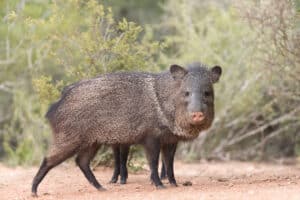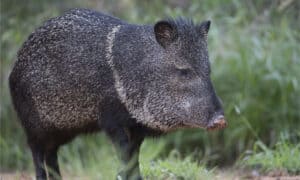Don’t make the mistake of thinking that javelinas are just a slimmer version of a domestic pig. They are very different. As this extensive footage shows, these are swine with attitude. Watch the fascinating video of how they behave.
Watch the Fascinating Footage Below!
What Exactly Are Javelinas?
The impressive creatures in this clip are collared peccaries called javelinas or musk hogs. Whilst they are often mistaken for wild pigs or boars, they are entirely different animals. Javelinas can grow up to 60 pounds and live for 10 years. They live in distributions ranging from northern Argentina and Brazil down to Mexico and the southwestern parts of the US. You can spot them in Texas, Arizona, and New Mexico to name just a few states. They are also found on the Caribbean islands of Trinidad and Tobago. In terms of habitat, they like a range of environments including tropical rainforests, grasslands, shrublands, and deserts where prickly pear cacti grow. They are also in some human settlements!
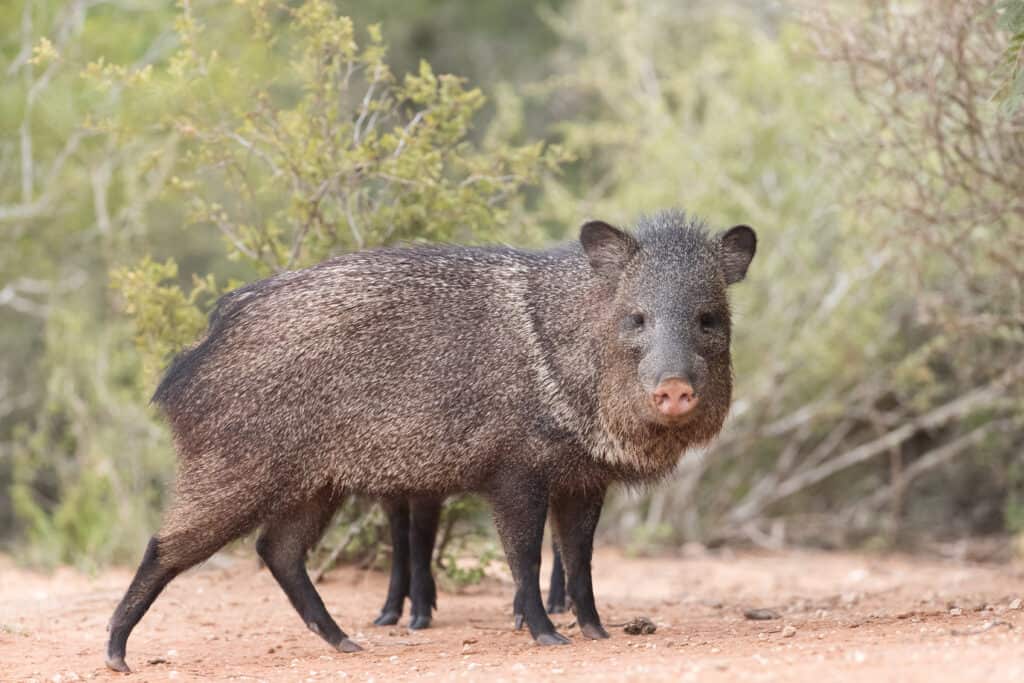
Javelinas are also called musk hogs.
©Dennis W Donohue/Shutterstock.com
What Do Javelinas Normally Eat?
Javelinas have a stomach with three chambers allowing them to efficiently digest fibrous vegetation. For many populations, cacti are an important food source. Javelinas have an efficient method of removing the sharp spines with their snout. It takes a tough animal to tackle a spiny cactus! Their favorite snack is a prickly pear, and they can frequently be seen coming to blows over a particularly tasty fruit.
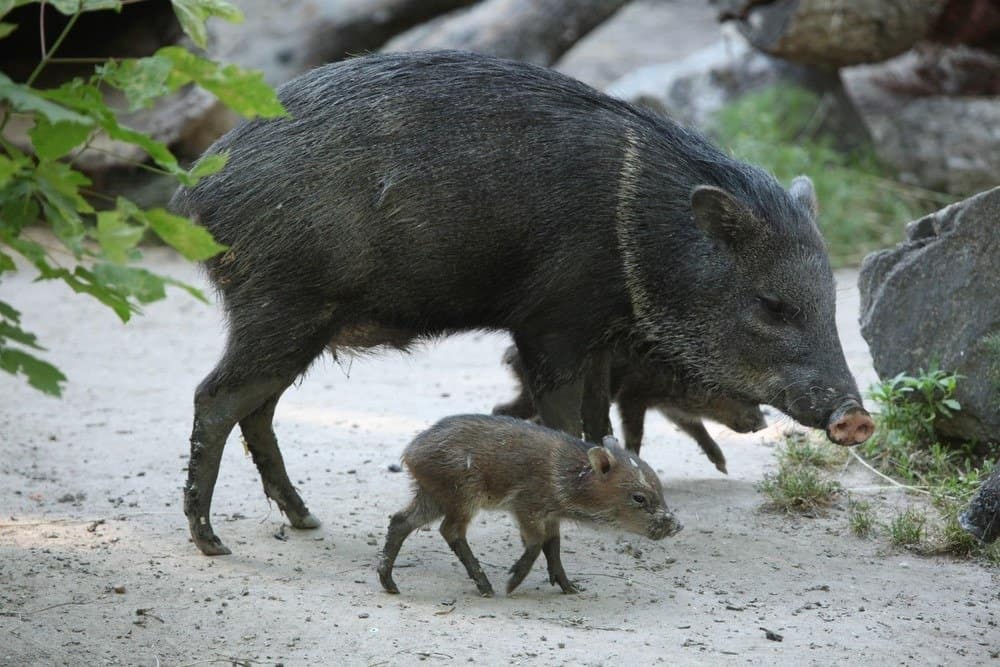
Javelinas love prickly pears so much that they often fight over them.
©Vladimir Wrangel/Shutterstock.com
Do Javelinas Often Fight?
Yes, these guys seem to be very irritable! Fights frequently break out, using their large and straight canines to attack each other. While most fights are short and do not result in serious injury, they sometimes fight to the death. As with many other species, competition for food is a frequent trigger for confrontations.
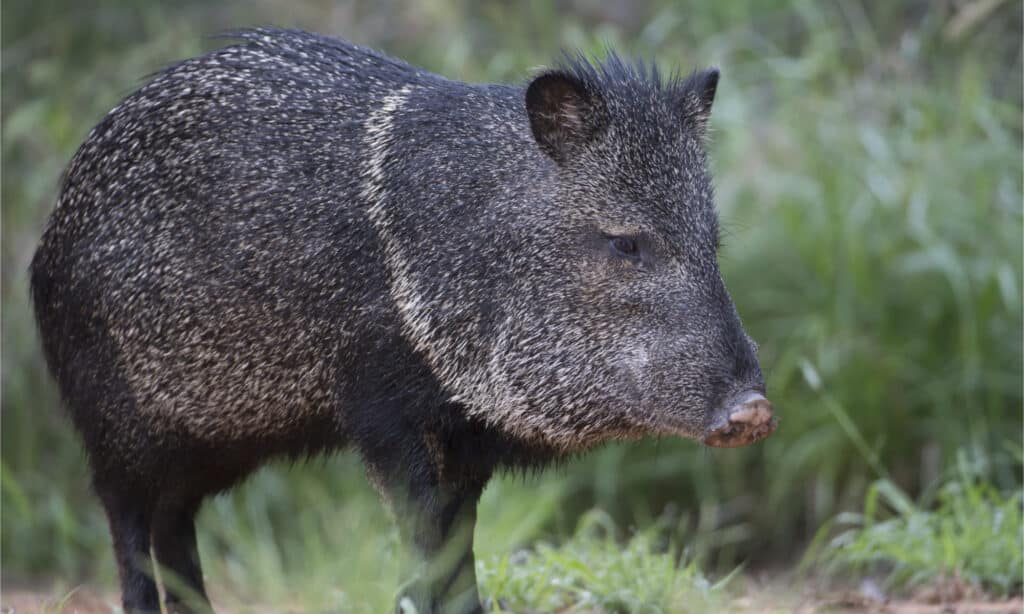
Javelinas can get into fights over food or territory.
©Dennis W Donohue/Shutterstock.com
Musk hogs are social animals and live in herds of between five and 15 individuals although some herds are as large as 50. Within the herd, there is a hierarchy led by a dominant male and they are willing to defend their territory aggressively. These guys are intelligent and there is evidence that they even grieve when a member of the herd dies. They are certainly willing to back each other up when a predator appears. In this clip, we see them chasing off bobcats and coyotes, and even a large cougar backs off when faced with an entire herd!
Is it Normal for Javelinas to Attack Cougars?
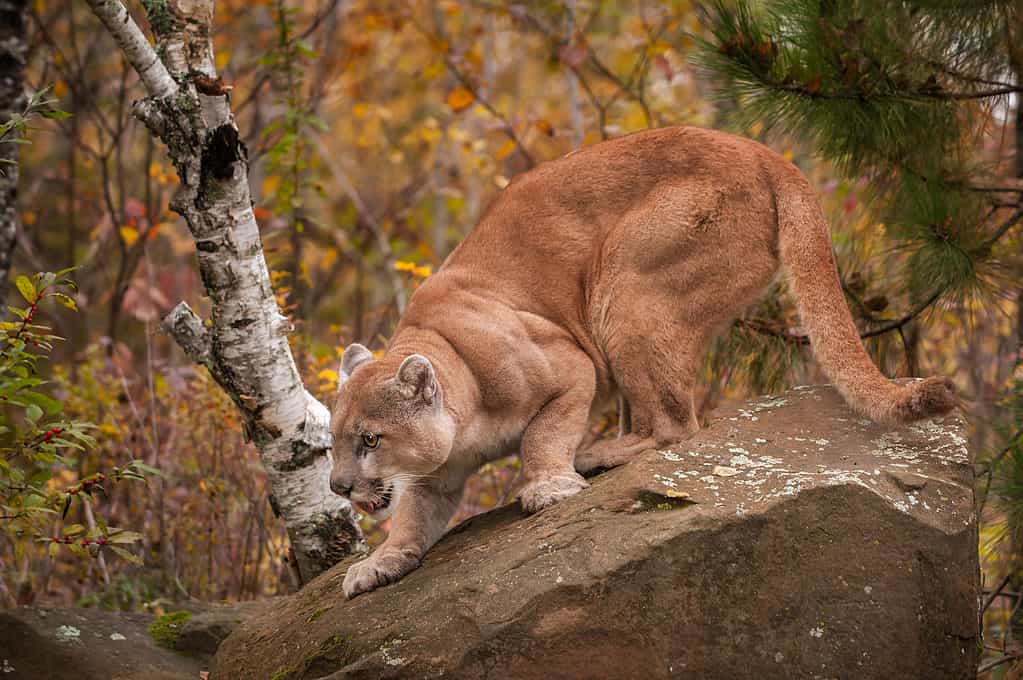
Cougars prey on individual javelinas but seldom take on a group.
©Holly Kuchera/Shutterstock.com
In the video, we see javelinas living many aspects of their lives and displaying amazing tenacity and courage when facing predators. A group of javelinas faces off against a cougar in one scene – clearly showing that one big cat doesn’t have a chance against a wall of protective javelinas! Is it normal for these feisty animals to challenge such a fierce foe? Yes, it is!
Javelinas are notorious for their ferocity – but some of this aggression may be attributed to their poor eyesight. While their sense of smell is off the charts – they can’t see very well. Their strategy is to go after any threat with full force – biting, shoving, screaming – anything they can do to protect themselves and their group. Many dogs have been seriously injured or killed when trying to guard their territories against javelina. Cougars have surely suffered as much when going against a javelina family group. One javelina would be doable – but an angry family in defense mode would be too much for one big cat to handle!
The photo featured at the top of this post is © Dennis W Donohue/Shutterstock.com
Thank you for reading! Have some feedback for us? Contact the AZ Animals editorial team.



